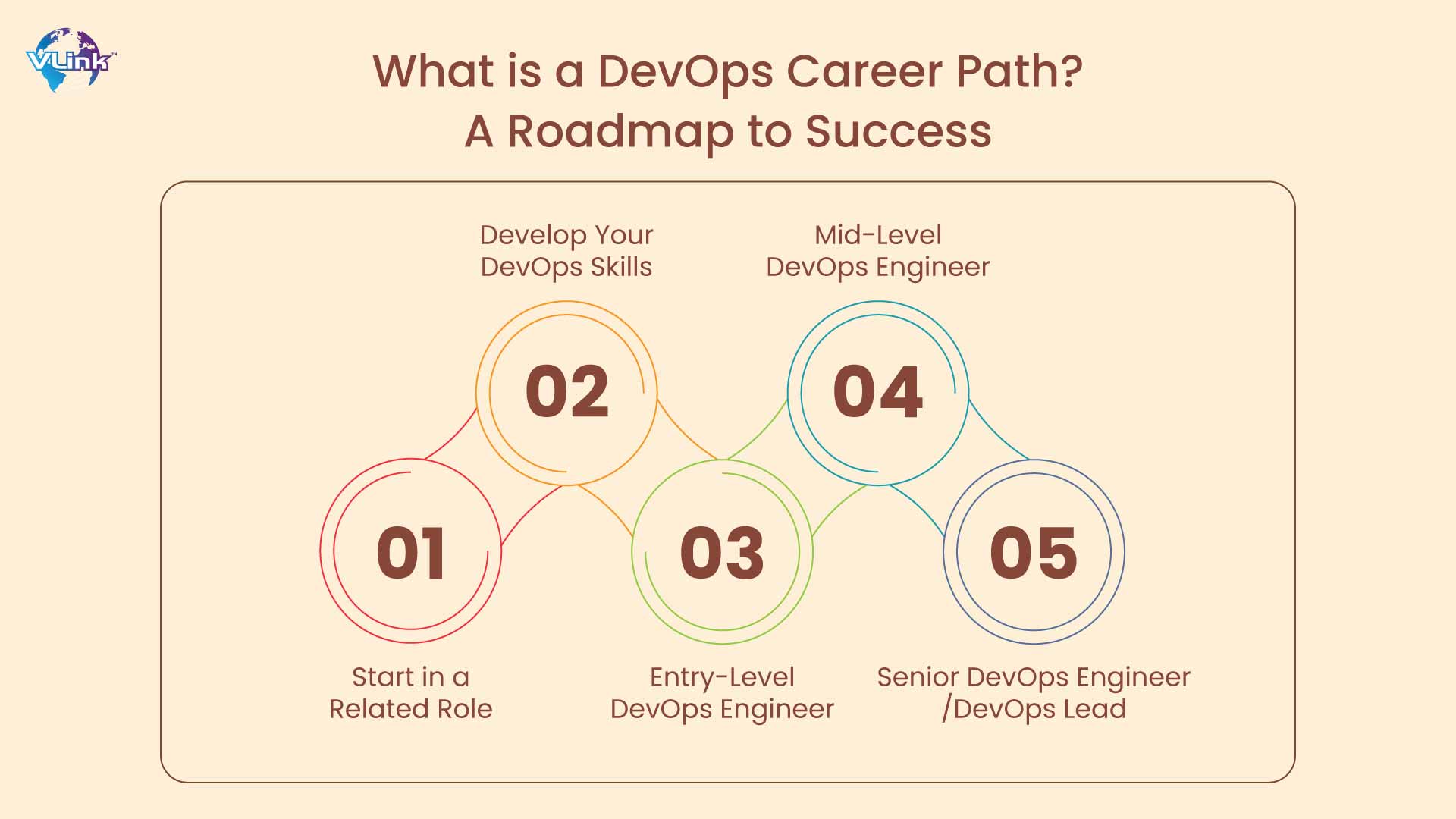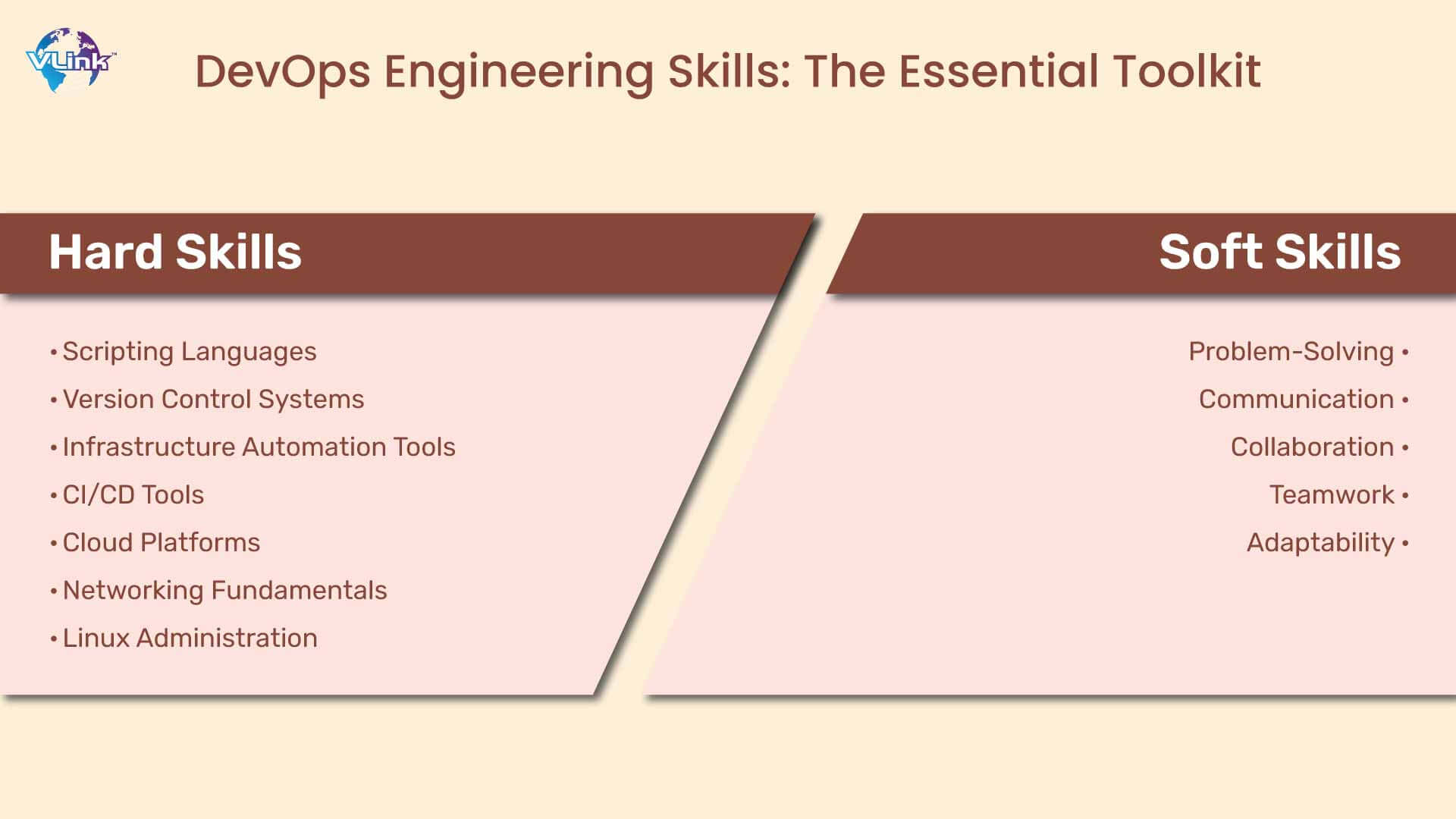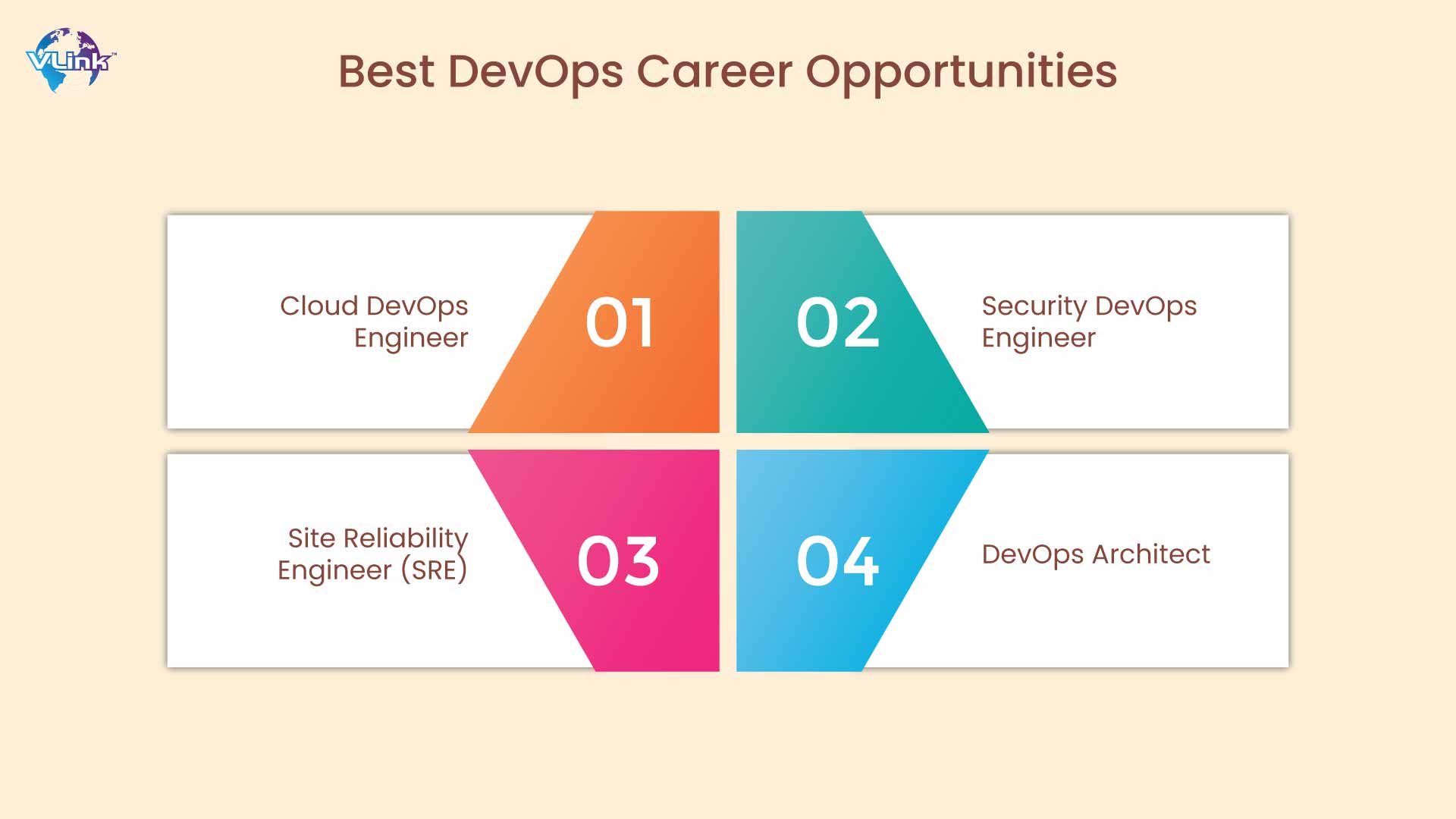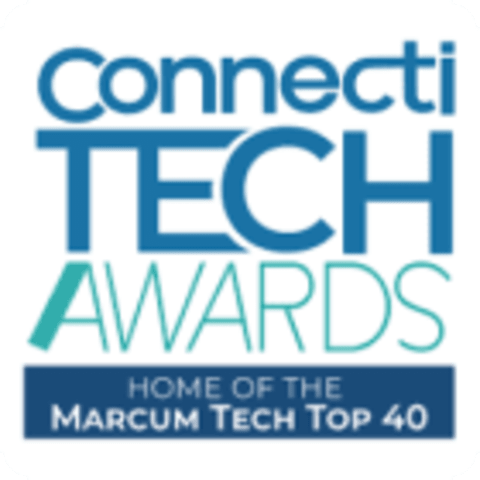The breakneck pace of software development demands a new breed of IT professional: the DevOps engineer. They bridge the gap between development and operations, ensuring a smooth flow of innovation from concept to deployment. But what exactly does a DevOps engineer do?
DevOps is more than just a job title or a set of tools. It's a cultural shift within organizations that emphasizes collaboration, communication, and automation throughout the software development lifecycle. Imagine a software development team as a bustling kitchen. Developers are the chefs, crafting delicious code. Testers are the meticulous food critics, ensuring quality. Operations are the waitstaff, delivering the final product to eager customers. Traditionally, these teams functioned in separate corners, leading to bottlenecks and delays in getting the "dish" (software) out the door.
DevOps breaks down these silos, fostering communication and collaboration between teams. It's like installing a conveyor belt in the kitchen, automating tasks and streamlining the entire process. According to a Futurum Research report, 82% of high-performing enterprises have already adopted DevOps practices. Also, Global Market Insights reported that the DevOps Market size crossed $8 billion in 2022 and is projected to grow at 20% CAGR from 2023 to 2032. This widespread adoption highlights the effectiveness of DevOps in streamlining processes, improving software quality, and accelerating deployments. This comprehensive guide explores the world of DevOps, including career paths, essential skills, and the exciting opportunities this field offers.
What is a DevOps Engineer?
In today's fast-paced software development environment, many companies are looking to hire DevOps engineers. A DevOps engineer is the glue that holds the DevOps world together. These IT jacks-of-all-trades possess expertise in coding, infrastructure management, system administration, and utilizing various DevOps toolchains. Think of them as the head chef, overseeing all aspects of the kitchen, from recipe creation (code) to ensuring smooth service (deployment). Their primary role is to bridge the gap between development and operations, providing a seamless flow of code from conception to deployment.
DevOps engineers are problem solvers at heart. They automate manual tasks, implement continuous integration and continuous delivery (CI/CD) pipelines, and monitor system performance to identify and resolve issues proactively. They also play a crucial role in promoting a culture of collaboration and shared responsibility within the development team.
Here's a day in the life of a DevOps engineer, illustrating the multifaceted nature of their role:
- Morning: Review developers' code commits and ensure they meet quality standards through automated testing tools.
- Mid-Morning: Collaborating with developers to identify and troubleshoot deployment issues.
- Afternoon: Automating a repetitive task in the infrastructure provisioning process saves valuable time for the operations team.
- Late Afternoon: Monitoring system performance metrics and proactively addressing potential bottlenecks.
Types of DevOps Engineers
The diverse nature of DevOps means engineers can specialize in different areas based on their interests and the organization's needs. Here's a closer look at some common types of DevOps engineers:
- Release Manager: The release manager oversees the entire software release process, ensuring timely and smooth deployments. They act as the maître d', coordinating all aspects of getting the finished product to the table (users).
- Software Developer: These engineers write code, automate tasks, and contribute to developing DevOps tools and processes. They're the chefs in the kitchen, constantly innovating and refining recipes (code) to meet evolving needs.
- Software Tester: Software testers are meticulous food critics. They design and execute automated and manual tests to ensure the software is free of bugs and delivers a flawless user experience.
- Quality Assurance Engineer: QA engineers review and test new code to identify vulnerabilities and ensure adherence to coding standards. They're the health inspectors, making sure the food (software) is safe and meets all the regulations.
- Security Engineer: Security engineers integrate security best practices into the DevOps pipeline to build secure and reliable software. They're the kitchen's security personnel, ensuring the food (software) is protected from external threats.
- Automation Engineer: These engineers create and maintain scripts and tools to automate repetitive tasks across the development lifecycle. They're the resourceful kitchen assistants, constantly finding ways to streamline processes and free up time for other tasks.
What is a DevOps Career Path? A Roadmap to Success

A DevOps career path can be incredibly rewarding. It offers the opportunity to work on complex challenges, be at the forefront of technological advancements, and contribute directly to the success of software development projects. Here's a roadmap outlining a typical DevOps career path:
1. Start in a Related Role:
Gain foundational experience in IT by working in areas like system administration, software development, or IT support. This experience will provide a solid understanding of software development workflows and infrastructure management. Imagine this as an apprenticeship in the kitchen, learning the basics of food preparation and service.
2. Develop Your DevOps Skills:
Build your DevOps skillset by learning version control systems (Git), scripting languages (Python, Bash), infrastructure automation tools (Ansible, Terraform), and CI/CD tools (Jenkins, GitLab CI/CD). Online courses, certifications, and personal projects are great ways to develop these skills. Think of this as attending culinary school or taking specialized cooking classes to hone your craft and learn new techniques.
- Online Courses and Certifications:
Platforms like Coursera, Udemy, and edX offer many DevOps courses and certifications. These can introduce you to essential tools and methodologies, and earning certifications can demonstrate your skills to potential employers.
- Bootcamps:
Intensive bootcamps provide a fast-paced learning experience, equipping you with the skills to land an entry-level DevOps role. These are like accelerated culinary bootcamps, offering a condensed and practical learning experience.
- Personal Projects:
Building and deploying your own projects using DevOps tools and methodologies allows you to gain practical experience. This hands-on approach demonstrates your understanding of DevOps principles and showcases your problem-solving skills to potential employers. Think of this as creating your own signature dish, showcasing your creativity and mastery of culinary techniques.
3. Entry-Level DevOps Engineer:
Once you have a solid foundation, look for entry-level DevOps engineer positions. These roles often involve supporting existing DevOps processes, automating tasks, and assisting with deployments. Imagine this as your first chef position, working alongside experienced colleagues and learning the ropes of the kitchen.
4. Mid-Level DevOps Engineer:
As you gain experience, you can progress to mid-level roles where you take on greater responsibility. This could involve designing and implementing DevOps pipelines, managing infrastructure, and collaborating with developers on automation strategies. Think of this as becoming a sous chef, taking on more leadership responsibilities while still learning from more senior chefs.
5. Senior DevOps Engineer/DevOps Lead:
Senior DevOps engineers are seasoned professionals who lead teams, design and implement DevOps strategies, and troubleshoot complex problems. They may also mentor junior engineers and contribute to the overall DevOps culture within the organization. Imagine this as becoming the head chef, leading the kitchen team, ensuring smooth operation, and constantly innovating to elevate the dining experience.
How Can Planning a DevOps Career Path Benefit You?
A well-defined career path provides a roadmap for your professional development. It allows you to focus on acquiring the necessary skills and experience to achieve your long-term goals. Here are some specific benefits of planning your DevOps career path:
- Focused Learning: By identifying your needed skills, you can tailor your learning to acquire the most relevant knowledge for your desired career trajectory. It's like creating a personalized recipe book, focusing on the techniques and ingredients you need to master specific types of dishes.
- Increased Motivation: A clear vision of what you want to achieve keeps you motivated and focused on acquiring the necessary skills. It helps you celebrate milestones and stay engaged in your learning journey. Imagine being motivated by the dream of owning your own restaurant, constantly pushing you to learn and refine your culinary skills.
- Improved Job Search: A defined career path allows you to target your resume and cover letter to specific DevOps roles aligned with your skills and goals. You can showcase your understanding of the career progression and highlight the skills you're actively developing. This is like tailoring a menu to your target audience, highlighting dishes that resonate with their specific preferences.
- Competitive Advantage: In a competitive job market, having a well-defined career path demonstrates your commitment to professional growth and positions you as a serious candidate. Imagine walking into a restaurant interview with a well-defined culinary vision and a portfolio of impressive signature dishes, making you stand out from other applicants.
Things to Consider Before Starting a DevOps Engineering Career
Before embarking on your DevOps journey, consider these factors to ensure it's a good fit for you:
Technical Skills:
DevOps requires a blend of technical skills. You should be comfortable with coding, scripting languages, and infrastructure management tools. If you enjoy learning new technologies and solving problems with code, DevOps could be a great choice. Imagine enjoying experimenting with new ingredients and techniques in the kitchen, constantly seeking ways to innovate and improve your culinary creations.
Adaptability and Continuous Learning:
The IT landscape is constantly evolving. As a DevOps engineer, you must be adaptable and continuously learn new skills to stay ahead of the curve. This is like adapting your menu based on seasonal ingredients and evolving customer preferences, ensuring your culinary offerings remain fresh and relevant.
Collaboration and Communication:
DevOps thrives on collaboration. You'll need to work effectively with developers, operations teams, and other stakeholders. Excellent communication skills are essential to explain technical concepts clearly to both technical and non-technical audiences. Imagine yourself as the head chef, not just creating amazing dishes but also effectively communicating your vision to your team and ensuring everyone understands their roles in delivering a cohesive dining experience.
DevOps Engineering Skills: The Essential Toolkit

A successful DevOps engineer requires a diverse skillset encompassing both technical (hard) and non-technical (soft) skills. Here's a breakdown of the essential tools in your DevOps engineer toolkit:
Hard Skills:
- Scripting Languages: Python, Bash, and PowerShell. These are like kitchen knives—versatile tools for automating tasks and manipulating data.
- Version Control Systems: Git. This is like your recipe book, keeping track of all changes and iterations of your code.
- Infrastructure Automation Tools: Ansible, Terraform, Chef, Puppet. Like high-tech kitchen appliances and automation of infrastructure provisioning and configuration.
- CI/CD Tools: Jenkins, GitLab CI/CD, CircleCI. These are like your automated assembly lines, streamlining the process of building, testing, and deploying code.
- Cloud Platforms: AWS, Azure, GCP. Consider these as your different kitchens, each with its unique layout and equipment. Understanding cloud platforms allows you to adapt your DevOps practices to different environments.
- Networking Fundamentals: Understanding how data flows through your network is like knowing how ingredients move through your kitchen – essential for ensuring smooth operation.
- Linux Administration: Linux is a popular operating system for servers; mastering Linux administration is like becoming familiar with the tools and equipment used in your kitchen.
Soft Skills:
- Problem-Solving: Identifying and resolving technical issues efficiently is like diagnosing and fixing problems that arise in the kitchen, keeping the operation running smoothly.
- Communication: Communicating complex technical concepts clearly to both technical and non-technical audiences is like effectively explaining your culinary vision to your team and ensuring everyone understands their role.
- Collaboration: Effectively working with developers, operations teams, and other stakeholders is like fostering teamwork in the kitchen, ensuring everyone works together towards a common goal—delivering a flawless dining experience.
- Teamwork: Fostering a collaborative environment where teams work together towards shared goals is like building a strong team spirit in the kitchen, where everyone supports each other to create something amazing.
- Adaptability: Embracing change and continuously learning new skills to stay relevant in the ever-evolving IT landscape is like adapting your menu and cooking techniques based on new trends and customer preferences.
How to Become a DevOps Engineer
There's no one-size-fits-all approach to becoming a DevOps engineer. Here are some common pathways to get you started on your culinary DevOps journey:
Formal Education:
While not always mandatory, a computer science degree or related IT field can provide a strong foundation in programming, networking, and systems administration. Some universities even offer DevOps-specific programs. This can be like attending a prestigious culinary school, providing a solid theoretical foundation for your culinary skills.
Online Courses and Certifications:
Numerous online platforms offer DevOps courses and certifications. These courses can introduce you to essential DevOps tools and methodologies, and earning certifications can validate your skills to potential employers. Think of this as enrolling in online cooking classes or certification programs to hone your skills and gain industry recognition.
Bootcamps:
Intensive bootcamps provide a fast-paced and immersive learning experience, equipping you with the necessary skills to land an entry-level DevOps role. These are like accelerated culinary bootcamps, offering a condensed and practical learning experience.
Personal Projects:
Building and deploying your own projects using DevOps tools and methodologies allows you to gain practical experience. This hands-on approach demonstrates your understanding of DevOps principles and showcases your problem-solving skills to potential employers. Think of this as creating your own signature dishes, showcasing your creativity and mastery of DevOps techniques.
Start in a Related Role:
Gain foundational IT experience in system administration, software development, or IT support. Transitioning to a DevOps role from within your organization can leverage your existing knowledge and company familiarity. This is like gaining experience in a restaurant kitchen, learning the ropes from experienced chefs before taking on a DevOps role.
Remember, the journey to becoming a DevOps engineer is an ongoing process of learning and adaptation. Embrace the challenge, stay curious, and continuously hone your skills to become a valuable asset in the DevOps world.
Additional resources
Here are some additional resources to fuel your DevOps journey:
Online Communities: Join online DevOps communities like Stack Overflow, Reddit's r/devops, and DevOps Discord servers. These communities are excellent platforms for connecting with other DevOps professionals, asking questions, sharing knowledge, and staying updated on the latest trends. Imagine these as online forums for chefs where you can exchange recipes, troubleshoot culinary challenges, and learn from the experiences of others.
- Industry Publications: Subscribe to DevOps industry publications like The DevOps Report, DevOps Digest, and DZone DevOps. These publications provide valuable insights into DevOps best practices, case studies, and emerging technologies. Think of these as culinary magazines, keeping you up-to-date on new ingredients, cooking techniques, and restaurant industry trends.
- Books and Podcasts: Numerous books and podcasts are dedicated to DevOps. Explore these resources to deepen your understanding of DevOps principles, methodologies, and tools. Imagine these as cookbooks and culinary podcasts, offering in-depth knowledge and expert insights from experienced chefs and restaurateurs.
By leveraging these resources and actively engaging in the DevOps community, you can stay ahead of the curve and continuously enhance your skills. The world of DevOps is constantly evolving, and your ability to learn and adapt will be your greatest asset.
Best DevOps Career Opportunities

The demand to hire skilled DevOps engineers is skyrocketing across various industries. With your diverse skill set, you can unlock many exciting career paths. Here are some of the most promising DevOps career opportunities, each with its unique flavor:
Cloud DevOps Engineer:
Specialize in deploying and managing applications on cloud platforms like AWS, Azure, or GCP. This is a rapidly growing field, and cloud skills are highly sought-after. Imagine yourself as a chef specializing in modern, tech-driven cuisine, adept at utilizing cutting-edge kitchen appliances and techniques.
Security DevOps Engineer:
Integrate security best practices into the DevOps lifecycle to build secure and reliable software. As security threats become more sophisticated, security is a crucial aspect of modern DevOps practices. Think of yourself as the restaurant's health inspector, ensuring the food (software) is prepared and served hygienically, protecting customers (users) from harm.
Site Reliability Engineer (SRE):
Focus on ensuring the reliability, scalability, and performance of large-scale applications. SREs bridge the gap between development and operations, utilizing automation and data analysis to identify and resolve performance issues proactively. Imagine yourself as the restaurant's operations manager, constantly monitoring kitchen processes, identifying bottlenecks, and implementing solutions to ensure smooth food delivery during peak hours.
DevOps Architect:
Design and implement DevOps strategies at an enterprise level. This role requires a deep understanding of DevOps principles, automation tools, and the ability to tailor DevOps practices to meet specific organizational needs. Think of yourself as a renowned restaurateur, designing and overseeing the entire restaurant experience, from the kitchen layout to the dining atmosphere, ensuring every element works cohesively.
These are just a few examples, and the specific opportunities available will depend on your skills, experience, and industry interests. Here are some additional factors to consider when choosing a DevOps career path:
- Company Culture: Look for companies that embrace DevOps principles and foster a collaborative environment. A strong DevOps culture promotes innovation and continuous improvement and rewards your work. Imagine working in a restaurant with a collaborative kitchen team where everyone is passionate about creating exceptional culinary experiences.
- Work-Life Balance: Consider how important work-life balance is to you. Some DevOps roles may require on-call support or irregular working hours, depending on the industry and company culture. This is like choosing a restaurant job – some offer predictable schedules, while others might require working evenings and weekends during peak seasons.
- Growth Potential: Choose a role that offers learning and professional development opportunities. Look for companies that invest in their employees' growth and provide opportunities to take on new challenges and responsibilities. Imagine working in a restaurant that encourages its chefs to experiment with new ingredients and techniques, fostering continuous learning and growth.
Hire DevOps Engineers from VLink
VLink is a leading provider of IT staffing solutions, specializing in connecting top DevOps engineers with exciting opportunities. We understand the critical role DevOps engineers play in driving innovation and ensuring successful software development projects.
If you're looking for highly skilled and experienced DevOps engineers, VLink can help you find the perfect candidate for your team. We have a deep understanding of the DevOps landscape and can match your specific needs with the most qualified professionals.
Here's what sets us apart from other recruiters:
- Extensive Network: We have a vast network of talented DevOps engineers across various skill sets and experience levels. Imagine us having access to a global pool of the most skilled chefs, allowing us to find the perfect fit for your restaurant's needs.
- Rigorous Screening Process: We thoroughly vet all candidates to ensure they possess the technical skills and cultural fit for your organization. This is like conducting in-depth interviews and skills tests to ensure the chefs we recommend have the talent and temperament to thrive in your kitchen environment.
- Streamlined Placement Process: Our dedicated team handles the entire recruitment process, saving you time and resources. This allows you to focus on running your restaurant while we find the best culinary talent for your team.
That’s it from our side in this blog. We hope this comprehensive guide has equipped you with the knowledge and inspiration to pursue a fulfilling career in DevOps. Now, go forth and start building something amazing!
Contact us today to learn more about how we can help you build a high-performing DevOps team! With the right team in place, you can transform your software development process and deliver exceptional digital experiences to your users.
Wrapping Up!
A career in DevOps requires technical expertise, problem-solving skills, and a passion for collaboration. It's a dynamic field that offers the opportunity to work on complex challenges, contribute to innovative projects, and make a real impact on the software development landscape.
So, are you ready to embark on your DevOps journey? With the right skills, mindset, and resources, you can become a valuable asset in the ever-growing world of DevOps. Remember, the journey is just as important as the destination. Embrace the challenges, celebrate your milestones, and continuously strive to learn and grow.
Frequently Asked Questions
This depends on your skills and interests. If you enjoy problem-solving, collaboration, and working at the forefront of technology, then DevOps could be a great fit. A passion for learning and adapting is also crucial as the field is constantly evolving.
There's no one-size-fits-all answer. You can gain entry-level positions with relevant IT experience and a strong foundation in DevOps skills. Building personal projects and pursuing certifications can also be advantageous.
DevOps offers a clear path for advancement. From entry-level roles to DevOps architects, you can progress by acquiring new skills and taking on greater responsibilities. This blog outlines the exciting culinary journey of a DevOps career!
Numerous resources are available online and offline. Online communities, industry publications, books, and podcasts can provide valuable insights and keep you updated on the latest trends. This blog highlights resources to fuel your delicious DevOps adventure!















